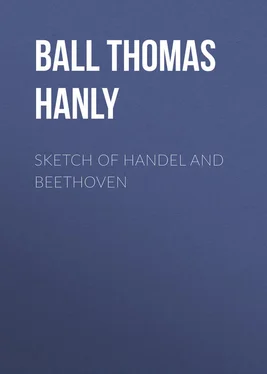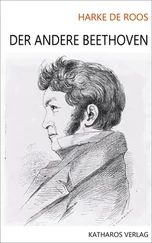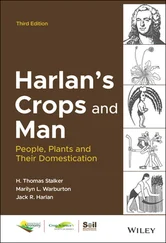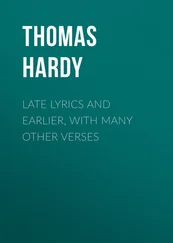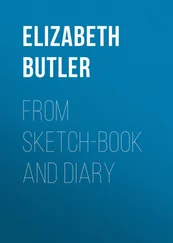Thomas Ball - Sketch of Handel and Beethoven
Здесь есть возможность читать онлайн «Thomas Ball - Sketch of Handel and Beethoven» — ознакомительный отрывок электронной книги совершенно бесплатно, а после прочтения отрывка купить полную версию. В некоторых случаях можно слушать аудио, скачать через торрент в формате fb2 и присутствует краткое содержание. Жанр: foreign_antique, foreign_prose, на английском языке. Описание произведения, (предисловие) а так же отзывы посетителей доступны на портале библиотеки ЛибКат.
- Название:Sketch of Handel and Beethoven
- Автор:
- Жанр:
- Год:неизвестен
- ISBN:нет данных
- Рейтинг книги:3 / 5. Голосов: 1
-
Избранное:Добавить в избранное
- Отзывы:
-
Ваша оценка:
- 60
- 1
- 2
- 3
- 4
- 5
Sketch of Handel and Beethoven: краткое содержание, описание и аннотация
Предлагаем к чтению аннотацию, описание, краткое содержание или предисловие (зависит от того, что написал сам автор книги «Sketch of Handel and Beethoven»). Если вы не нашли необходимую информацию о книге — напишите в комментариях, мы постараемся отыскать её.
Sketch of Handel and Beethoven — читать онлайн ознакомительный отрывок
Ниже представлен текст книги, разбитый по страницам. Система сохранения места последней прочитанной страницы, позволяет с удобством читать онлайн бесплатно книгу «Sketch of Handel and Beethoven», без необходимости каждый раз заново искать на чём Вы остановились. Поставьте закладку, и сможете в любой момент перейти на страницу, на которой закончили чтение.
Интервал:
Закладка:
Thomas Hanly Ball
Sketch of Handel and Beethoven Two Lectures, Delivered in the Lecture Hall of the Wimbledon Village Club, on Monday Evening, Dec. 14, 1863; and Monday Evening, Jan. 11, 1864
DEDICATION
My Dear Mr. Beaumont,
Seneca has well said, "The three main points in the question of benefits, are, first, a judicious choice in the object; secondly, in the matter of our benevolence; and thirdly, in the manner of expressing it."
Of the first, it would not be becoming in me to speak; of the second, you are the rightful judge; of the third, I beg leave thus publicly to state, that not only in requesting permission to publish this lecture at your own expense but on many other occasions , you have fully come up to Seneca's idea of what a benefactor ought to be.
I shall not attempt describing what I hope you give me credit for; Furnius never gained so much upon Augustus as by a speech, upon the getting of his father's pardon for siding with Anthony , "This Grace," says he, "is the only injury that ever Cæsar did me; for it has put me upon a necessity of living and dying ungrateful."
Allow me to dedicate the little volume to you, and believe me, ever to remain,
Your obedient and faithful Servant, T. HANLY BALL.Wimbledon, 12th February, 1864.
PREFACE
A brief account of "The Wimbledon Village Club" will explain the origin and object of the two following Lectures.
"The design of the Institution is to afford to the inhabitants, and more especially the working and middle classes of Wimbledon and its vicinity, opportunities of intellectual and moral improvement, and rational and social enjoyment, through the medium of a Reading Room and Library, Lectures and Classes." 1 1 "Rules and Regulations of the Wimbledon Village Club," p. 1.
The Reading Room is supplied with Daily and Weekly Newspapers, Periodicals, and Books.
The Library contains upwards of Six Hundred volumes, all which have been presented to the Institution.
The Lectures are on various literary and scientific subjects.
To these have been recently added, Readings and Chat Meetings .
Readings , are three short readings from some popular author, by different readers, on the same evening.
" Chat Meetings are simplifications of a soirée, or a conversazione. They originated in the idea that many parishioners, having in their homes interesting objects, the examination of which would afford pleasure and instruction to their fellow-parishioners, would on certain occasions gladly take these objects to a room appointed for the purpose, and display and explain them." 2 2 "Hints on the Formation of Local Museums, by the Treasurer of the Wimbledon Museum Committee," p. 27.
Mr. Toynbee, the Fidus Achates of the Club, has, in his admirable "Hints on the Formation of Local Museums," well said – "The Wimbledon Club is admirably calculated to meet the wants of the working classes, as regards their recreation and instruction. While it furnishes amusement and instruction to all classes, it brings them together at its various meetings in friendly intercourse; the management of the Institution, and the organization of its several proceedings, afford a valuable experience to the Committee, who portion among themselves their respective work; and the preparation of the Lectures, &c., proves a healthy mental stimulus to those intelligent inhabitants who desire to take part in one of the most delightful of duties, viz., the conveyance to the minds of others an interest in those pleasing and elevating subjects from which, happily their own minds derive gratification ." – "Hints," pp. 8, 9.
Should these Lectures again interest any of the large and attentive audiences with which they were honoured, I will consider myself justified in having consented to their publication, and feel happy to be the medium of imparting information, even on a secular subject, to those whom it is my duty, and is my pleasure, to profit and please.
It is scarcely necessary for me to say, biographical lectures are chiefly the result of reading and research; 3 3 Works referred to, and extracted from, in the following Lectures: – Besides those mentioned in the Lectures, the following works are alluded to, or quoted; – Beattie's Essays; Burnet's History of Music; Hogart's Musical History; Edwards's History of the Opera; The Harmonicon; Schlegel's Life of Handel; Holmes' Life of Mozart; Moschele's Life of Beethoven.
I have, however, somewhat fully expressed my opinions on the advantages of music, and very freely on one or two cognate subjects, and others incidentally alluded to.
A SKETCH OF HANDEL
Before I say of that great composer and extraordinary man whose life I have undertaken to sketch, it will not be out of place, I hope, to make a few remarks on the History and Utility of Music.
I. – The History.
It has been well said by Latrobe, that – though the concise and compressed character of the Mosaic history admits no data upon which to found this supposition, yet we may readily conclude from the nature of music, and the original perfection of the human powers, that the Garden of Eden was no stranger to "singing and the voice of melody."
We read in Scripture that before the Fall, the state of our first parents was a state of unmingled happiness. Now, it is the very nature of joy to give utterance to its emotions. Happiness must have its expression. And thus it may well be supposed that man in his primal felicity would seek to express, by every conceivable mode, the love, gratitude, and joy which absorbed every affection of his nature.
Now, the most natural, as well as powerful, medium for conveying those feelings with which we are acquainted, is music. If then music be the expression of joy, it cannot be supposed unknown to our first parents, whose exultation was as intense as it was hallowed.
Milton says: —
"Neither various style,
Nor holy rapture wanted they to praise
Their Maker in fit strains, pronounced or sung
Unmeditated, such prompt eloquence
Flowed from their lips, in prose or numerous verse,
More tuneable, than needed lute or harp
To add more sweetness."
But soon the voice of unalloyed thanksgiving was silenced. Sin brought with it sorrow; and, ever since, the Hallelujahs of the saints have been strangely intermingled with the moanings of self-reproach, and the cries of judicial sufferings. The heart, now become the seat of a tremendous conflict between sin and holiness, lost its elasticity, and needed some outward excitement to call forth its song of praise. Hence the invention of instrumental music, which is assigned by Scripture to Jubal.
Longfellow says: —
"When first in ancient time, from Jubal's tongue,
The tuneful anthem filled the morning air,
To sacred hymnings and Elysian song
His music-breathing shell the minstrel woke —
Devotion breathed aloud from every chord,
The voice of praise was heard in every tone,
And prayer and thanks to Him the Eternal One,
To Him, that, with bright inspiration touched
The high and gifted lyre of everlasting song,
And warmed the soul with new vitality.
"To the element of air," says Bishop Horne, "God has given the power of producing sounds; to the ear the capacity of receiving them; and to the affections of the mind an aptness to be moved by them, when transmitted through the body." The philosophy of the thing is too deep and wonderful for us; we cannot attain to it! But such is the fact; with that we are concerned, and that is enough for us to know.
Читать дальшеИнтервал:
Закладка:
Похожие книги на «Sketch of Handel and Beethoven»
Представляем Вашему вниманию похожие книги на «Sketch of Handel and Beethoven» списком для выбора. Мы отобрали схожую по названию и смыслу литературу в надежде предоставить читателям больше вариантов отыскать новые, интересные, ещё непрочитанные произведения.
Обсуждение, отзывы о книге «Sketch of Handel and Beethoven» и просто собственные мнения читателей. Оставьте ваши комментарии, напишите, что Вы думаете о произведении, его смысле или главных героях. Укажите что конкретно понравилось, а что нет, и почему Вы так считаете.
